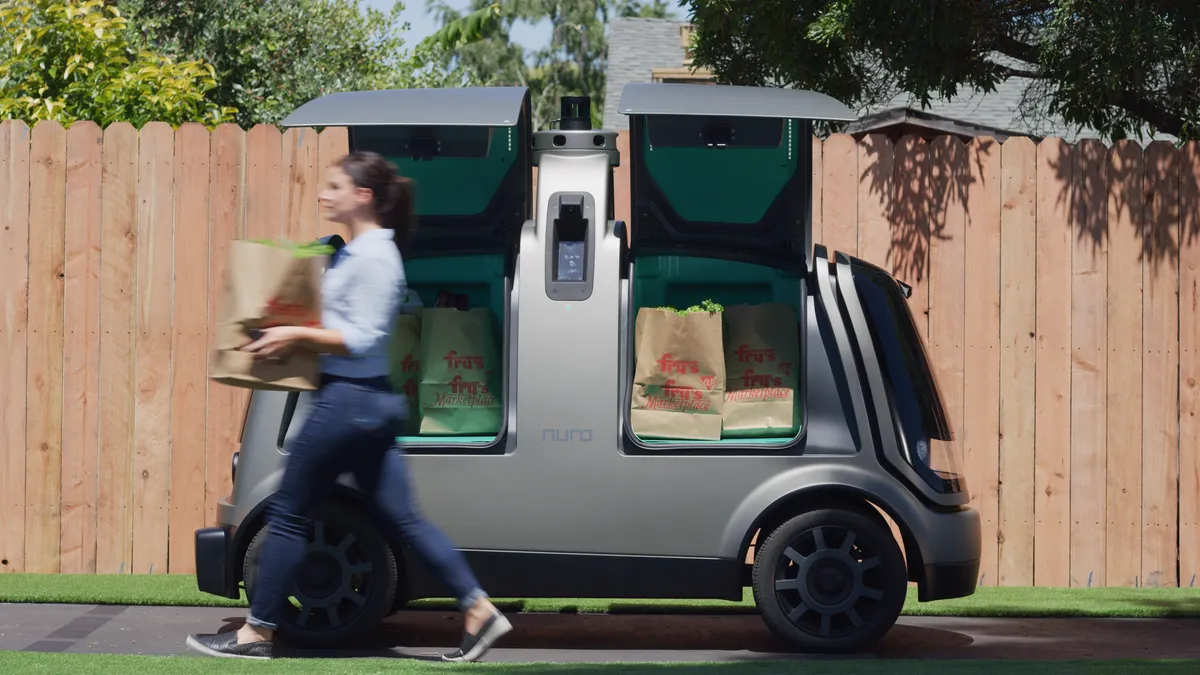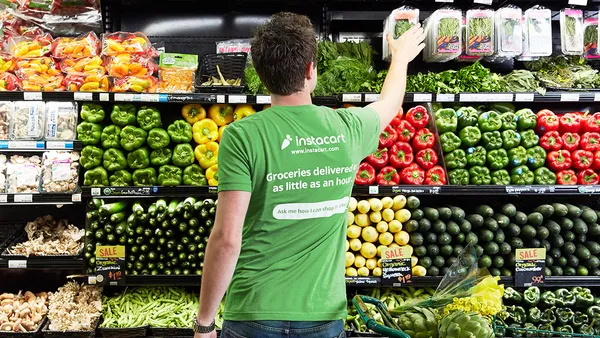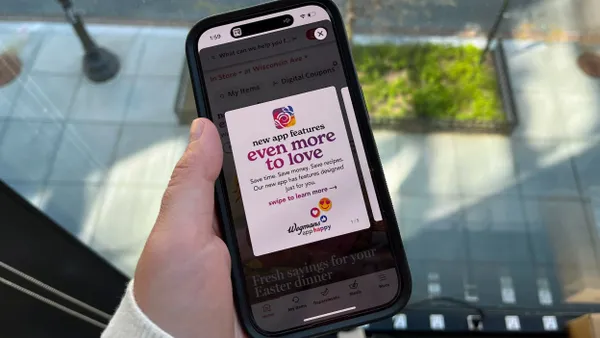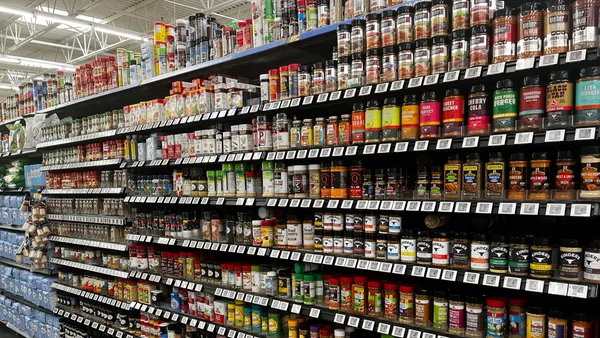Dive Brief:
- Kroger’s autonomous delivery pilot will enter its next phase this spring when the grocer transfers its collaboration with tech firm Nuro to Houston, according to a news release. The grocer will offer delivery from two stores, reaching customers across four zip codes in the metropolitan market. This compares to the single zip code served by Kroger and Nuro’s phase-one pilot in Scottsdale, Arizona, which launched last summer.
- As with the Scottsdale pilot, Nuro’s self-driving Toyota Prius vehicles, which have a human operator in the passenger’s seat, will lead delivery at first. Nuro’s fully automated R1 vehicles will enter the pilot later this year. Deliveries will be available to shoppers for same-day and next-day orders seven days a week for a $5.95 fee.
- A Kroger spokeswoman told Grocery Dive the company will discontinue its Scottsdale pilot later this month. "Our Arizona pilot program confirmed the flexibility and benefits provided by autonomous vehicles and how much customers are open to more innovative solutions," Yael Cosset, Kroger's chief digital officer, said in a statement. "It's always been our shared vision to scale this initiative to new markets, using world-changing technology to enable a new type of delivery service for our customers."
Dive Insight:
With its move to Houston, Kroger’s autonomous delivery test will serve more customers across a larger and more competitive landscape, further testing the technology’s mettle as stakes continue to rise in online grocery fulfillment.
Kroger and Nuro focused their initial test in Arizona because the weather, landscape and tech-savvy consumer base were all agreeable to driverless delivery. In transferring to Houston, the grocer moves into a market where it has top market share with 102 stores, but it also must battle heavyweights such as H-E-B, Walmart and Whole Foods.
A key question for Kroger will be whether Nuro’s bots can win over shoppers who frequent these competing chains. According to local reports, Kroger’s Scottsdale pilot generated repeat users and high customer satisfaction. One customer interviewed by the Arizona Republic compared the experience to "a sci-fi movie," indicating the potential "wow" factor autonomous delivery carries.
The finer points of the expansion, including how many cars will traverse Houston’s roads, aren’t available at this point. In Scottsdale, Nuro ran around a dozen Prius vehicles with an operator on board, and in December deployed two fully automated R1 vehicles. Deliveries ran 13 hours a day and were supported by roughly 60 Nuro employees.
What makes the R1 unique among driverless delivery competitors is its delivery-focused design. It’s optimized for carrying goods — an important feature for grocers such as Kroger that have eggs and other fresh and potentially fragile goods being sent to consumers — with capacity for up to 20 grocery bags. It’s also built for customer interaction, with wing doors that open after a shopper has entered a special code from their phone.
Kroger is racing other chains to scale autonomous delivery, including Walmart and Stop & Shop. The technology promises to streamline the last mile, which to date has proven very inefficient for grocers, while also reducing delivery fees for customers.
A raft of autonomous vehicles are currently in testing mode across several industries. Professional services firm KPMG estimates that driverless delivery vehicles could log as many as 78 million miles a year by 2040. However, driverless delivery is still in the very early stages, and scalability for grocers is not clear at this point. Some customers report the experience isn’t friction-free, while states and cities are in the process of figuring out how to regulate the new crop of vehicles angling to get on their roads.
What’s clear at this point is that grocers are determined to find better operational models for home delivery. They're also focused on automating more of their operations in a highly competitive, low-margin industry. So far, grocers like Kroger are moving methodically in their rollouts but if the early results are any indication, autonomous vehicles like Nuro stand to be a meaningful part of grocery delivery business in the future.













